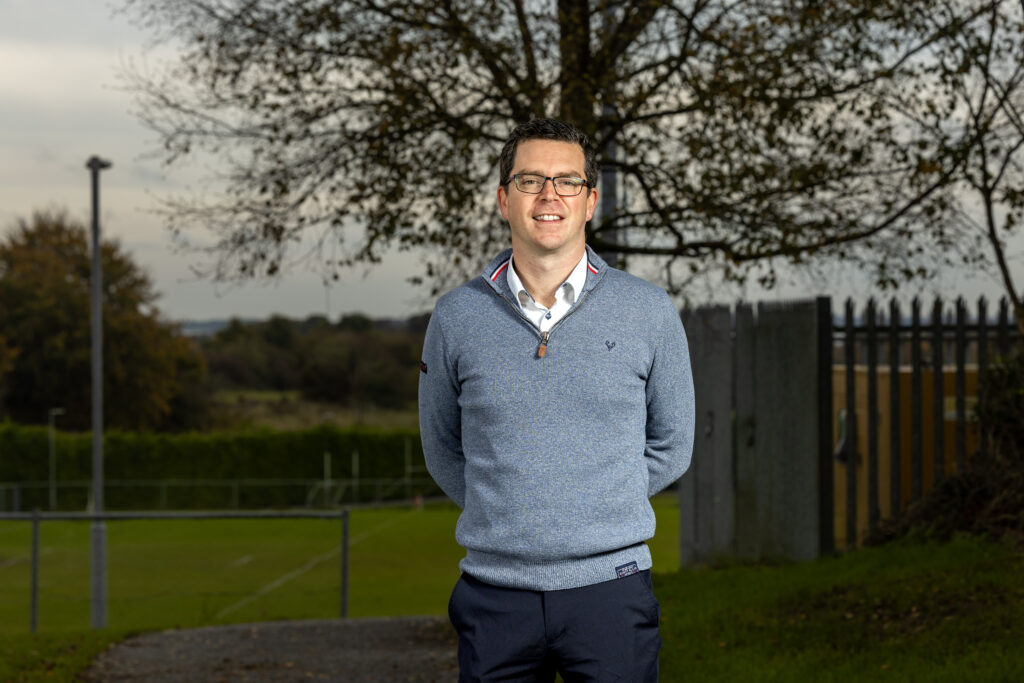A ground-breaking pan-European initiative spearheaded by the Technological University of the Shannon (TUS) is set to uncover the root causes of physical inactivity in young people.
Kicking off this month, the €2.8 million EU-funded ‘INDEEP’ study will investigate the complex interplay of factors influencing levels of physical activity in 12-14-year-olds, with the overarching aim of informing policy and enhancing health outcomes across Europe.
The project marks a first-of-its-kind exploration of a wide range of factors that impact physical activity, from biological, interpersonal and environmental influences, including genetic predisposition, parent and peer influences, access to green spaces and feelings of safety within those environments.
Departing from conventional research methods, which have traditionally relied on self-reported data, INDEEP adopts innovative measurement approaches, such as Ecological Momentary Assessment (EMA) integrated into participants’ devices to get real-time insights into environmental behavioural patterns.
This is complemented by a novel wearable leg sensor for continuous monitoring of a range of physical activity behaviours.

Dr Kieran Dowd, INDEEP study lead, lecturer in the Department of Sport and Health Sciences and researcher in the SHE Research Group at TUS Athlone Campus, said the wide array of factors under investigation and the study’s novel data collection techniques should deliver highly accurate results.
“We know from longitudinal studies that a broad range of factors influence physical activity participation in youth. However, much of the time, these factors are looked at in isolation. Even though some of these factors are not modifiable, we need to take them all into consideration collectively to better understand which factors are most important and are worth targeting to improve physical activity in youth,” he said.
“We expect our approach, grounded in device-based measurement and scalable measures, to give us a big picture view of why some young people are active and some are not, and we’re going to use that information to inform interventions to improve activity behaviours in young people.”
He continued, “We’re not just looking at how much time is being spent walking and running, or time spent in sport. It is important that we measure all behaviours well, such as sitting time or light intensity activity, as we spend the majority of our time in these behaviours.”
Central to the INDEEP project’s mission is the development of a comprehensive toolbox comprising interventions accessible to practitioners across Europe, spanning public health, sports coaching and education domains.
“We want to empower practitioners with evidence-based strategies tailored to address individual needs and challenges that will facilitate positive behaviour change,” Dr Dowd explained.
“The idea is that they will say ‘Ok, I’ve got a person here that is developing unhealthy physical activity behaviours, such as lots of screen use or withdrawing from sport participation, which, in time, will negatively impact their health. They don’t feel confident enough to go out for a run, so we’re going to look to the toolbox to try to modify some other behaviours to help them,” he continued.
“They will be able to use the toolbox to identify the key factors to target to give the young person the best possible chance of increasing participation in physical activity.”
The collaborative effort involves a multidisciplinary team of eight academic institutions with nine associated partners spanning nine countries in areas such as public health, private industry and education.
Leveraging the Marie Curie doctoral network, an EU research and training programme, the study will recruit and nurture a cohort of 10 PhD candidates from across the EU to address the contemporary challenges in physical activity research and policy formation.
VP of Research, Development and Innovation at TUS Dr Liam Brown underscored the project’s significance in advancing knowledge and fostering collaboration across Europe.
“This is about enhancing collective understanding to drive policy improvements for physical health across Ireland and the EU. With TUS’s SHE (Sport, Health and Exercise) group at the helm, INDEEP heralds a significant stride towards addressing these challenges and is poised to shape policies and practices that will benefit generations to come. We are delighted to work closely with partners across the EU to drive this impactful research,” he remarked.
Echoing this sentiment, Dean of the TUS Graduate School Dr Lisa Moran expressed pride in TUS’s selection to lead this pivotal EU project.
“This is the first time TUS will coordinate a Marie Curie doctoral network, and it is an achievement that we’re extremely proud of,” she said. “We are dedicated to nurturing talent capable of driving positive change and through INDEEP, these 10 PhD candidates will become foremost experts in this discipline.”




